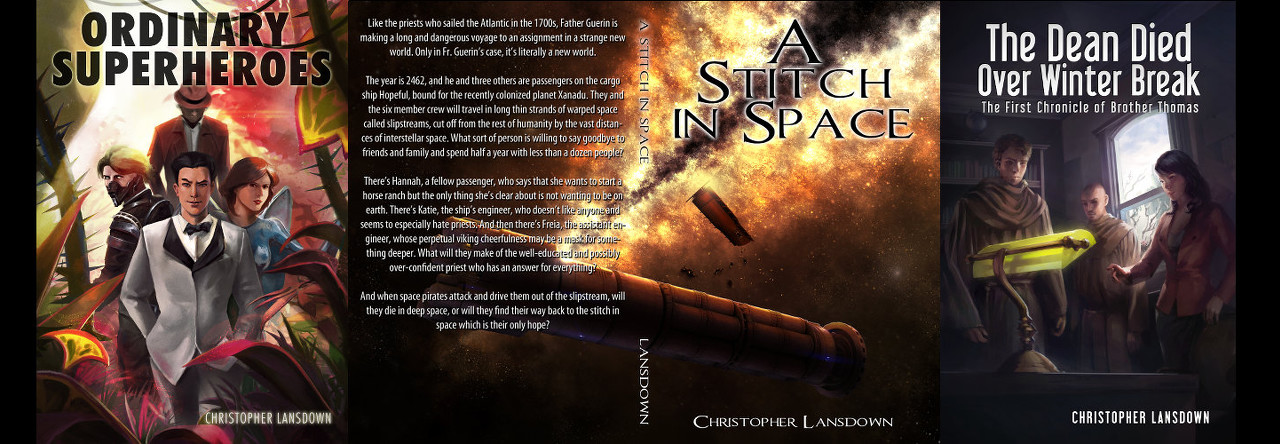I was about to write a blog post about the symbolic interpretation of the conspiracy theory on the moon landings being faked when I remembered that I already wrote it. Sigh. It’s even a pretty good post. You probably should read it instead of this post. Or perhaps read it then read this post.
That said, the one thing that I have to add is that I suspect that most everyone into the “fake moon landings” conspiracy theory is probably a fan of science fiction, as they are the people who would feel most betrayed by us never going back to the moon. Science fiction, especially in its heyday, was largely bound up with the idea of the progress of technology. This was by no means its only theme and it often has just been “fantasy in spandex,” but it arose during the era when technology was constantly changing the world and people could not predict how the world would be but it was fun to guess. For various reasons, some of them historical contingency, science fiction—and especially hopeful, non-dystopian science fiction—been about space travel. We would, in the words of the Star Trek opening narration, “explore strange new worlds… seek out new life and new civilizations… boldly go where no man has gone before!”
With the Apollo missions culminating in landing a man on the moon, it looked, to science fiction fans, like the future they’d read so much about was finally here. We went to the moon! We explored a strange new world! Granted, there was no life and no civilization on it, but we had boldly gone where no man has gone before!
Then we stopped.
It turned out that the future they’d read so much about was not here. It was still in the future.
So, in a sense, the moon landing was a hoax. It may not have actually been filmed on a sound stage, but it has no more practical significance to the life of someone who dreamed about serving on a star ship than all of the TV shows filmed on sound stages. That is, to these people, it might as well have been filmed on a sound stage for all the good it did them. It was, to the science fiction fan, just one more dream that will never come true (for them).
I suspect that this state of affairs has gotten even more galling as time has progressed. Fifty years later our technology has advanced significantly and yet here we still are, no more able to be captain of a star ship than people were fifty years ago. That glorious and shining future of exploring strange new worlds is no closer, which means that it’s fifty years further away than it was (that is, seemed) back when Neil Armstrong set foot on the moon. His most famous words, “one small step for [a] man, one giant leap for mankind” were wrong. It wasn’t even a step for mankind. Mankind gingerly tested the ground, then pulled its foot back and stayed put.
Addendum: I think that when companies like SpaceX end up making moon missions again because they’ve brought the price down far enough that it’s worth it as something other than a flex on the Russians, this conspiracy theory will probably die out because its symbolic value will go away. So hey, it’s a falsifiable prediction!
Discover more from Chris Lansdown
Subscribe to get the latest posts sent to your email.

Yes, that’s exactly what I feel. The moon landing as an event in history did occur–the United States put a capsule on the moon and brought it back to Earth with living human beings in it.
But for all the effect it has had on the world it might as well have been filmed on a sound stage. It was a publicity stunt, not the first step of the colonization of space.
LikeLiked by 1 person
I reckon the sci-fi fans are actually on the other side of the argument. Sure they didn’t get the world they wanted, but to therefore abandon the one event that gave them a taste of it?
Naa, it’s the novaskeptics who think the moon landing wasn’t possible – the kind of people who would rather keep a toaster knowing it half works than buying a new one (because the new one might very well be worse) – plus the people who are ambivolent about fiction and just don’t trust institutions a lot (justified or not).
n.b. This isn’t meant to inform the actual debate – just the steriotypes of it
LikeLike
For what it’s worth, my very little experience with moon landing skeptics is that they were (in their youth) huge science fiction fans. That said, what I’m talking about here is the conditional probability of being a science fiction fan given being a moon landing skeptic, not the conditional probability of being a moon landing skeptic given being a science fiction fan. That latter conditional probability I expect to be quite small.
LikeLike